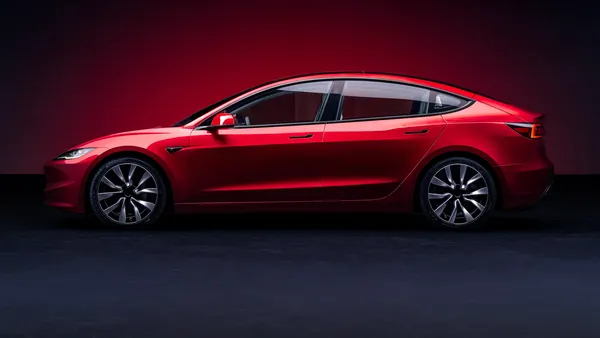Editor's note: This story is part of the WardsAuto digital archive, which may include content that was first published in print, or in different web layouts.
In the year since we warned that the oft-berated, appreciated-only-by-the-Europeans diesel engine was amassing a low-profile patronage in the U.S. (see WAW - April '97, p.49), another trend has continued, albeit much more conspicuously: the public's insistence on buying sport/utility vehicles (SUVs).
Yes, utes continue to sell, indifferent to impassioned and unrelenting attacks from all quarters, including a new barrage (see p.36) spearheaded by pretty much the same folks who brought you the air bag and rollover crises.
The safety issues have yet to play out, but the domestic automakers aren't going to mess with those calling down SUVs because of their gas-guzzling ways. The carmakers know environmental-friendliness criticism isn't going to go away, so they plan to yank SUV energy efficiency up closer to that of smaller, lighter passenger cars - and it's diesels to the rescue.
Suddenly, new-technology diesels and better, cleaner diesel fuel are the talk of Detroit.
Ford Motor Co. is the first of the domestics to publicly announce a scheme to marry diesels and SUVs. The company says it will work with Navistar International to develop a new-age diesel for the Expedition, Lincoln Navigator and other light-duty (under 8,500 lbs. GVW) truck/van applications. Navistar already does a fine job for Ford with the 7.3L "Powerstroke" diesel in the F-Series Super Duty work trucks.
And without much fanfare, the U.S. Dept. of Energy last fall launched an ambitious $166-million cost-sharing program with Caterpillar, Cummins Engine Co. and Detroit Diesel Corp. to develop "clean diesel" engines for light-duty trucks and SUVs. DOE wants the engine makers to team up with automakers - Ford and Chrysler Corp. are signed up - to create sophisticated diesels incorporating the latest technical architecture: high-pressure direct injection (DI) and common-rail fuel delivery being the chief components.
Those close to the program believe the highly refined diesels under development can elevate light-truck/SUV fuel efficiency by as much as 50%, while consequently chopping carbon dioxide (CO2) emissions by 40%. Remember, last year's Kyoto global-warming conference left us with that little mandate to deliver enormous CO2 reductions.
Detroit Diesel already has shown the press a few trucks and SUVs fitted with early versions of the proposed new diesels, and well, they're darn satisfying to drive. Needless to mention, if these diesels are to suit high-falutin' applications like the Navigator, expect gasoline engine-like NVH levels, too.
Adding (diesel) fuel to the fire are the recent announcements from Ford and General Motors Corp. that the two companies are teaming with Mobil Corp. and Amoco, respectively, to develop - guess what? - new-technology diesel engines and cleaner, advanced diesel fuel to optimize their already superior energy efficiency when compared with spark-ignited gasoline engines.
If there's any doubt diesels are the real deal, the automaker/oil company diesel-development hookups are the dead giveaway. These two industries enjoy a historically surly relationship that has become
curiously genial because of the diesel. Ford Chairman and Chief Executive Alex Trotman calls the alliance "an excellent fit," and Mobil executives seem equally radiant about the deal.
You might not want to get too hooked on the "D" word, though. Diesels got enough bad press in the '70s and '80s to make just about anybody connected with the industry leery about saying "diesel" too openly. The Partnership for a New Generation of Vehicles (PNGV), the industry/government group, is advancing toward an 80-mpg (2.9L/100 km) family car prototype that almost certainly will employ a diesel engine. But it has taken a shine to the more ambiguous term "compression ignition," maybe to divert civilians who bought Oldsmobile diesels and might be inspired to lodge outraged calls to elected officials approving PNGV funding. And Ford slyly dubs its PNGV-candidate diesel not for what it is, but as DIATA (Direct Injection Aluminum Through-bolt Assembly).
We won't see PNGV cars and their whiny, electricity-generating diesels until 2004, though. SUVs are the order of the day, and the guys making the big bucks are gambling that diesel engines will be just peachy for SUVs; they tell us high-tech DI diesels will pull like a locomotive and idle like a wristwatch.
Just don't say "diesel."









